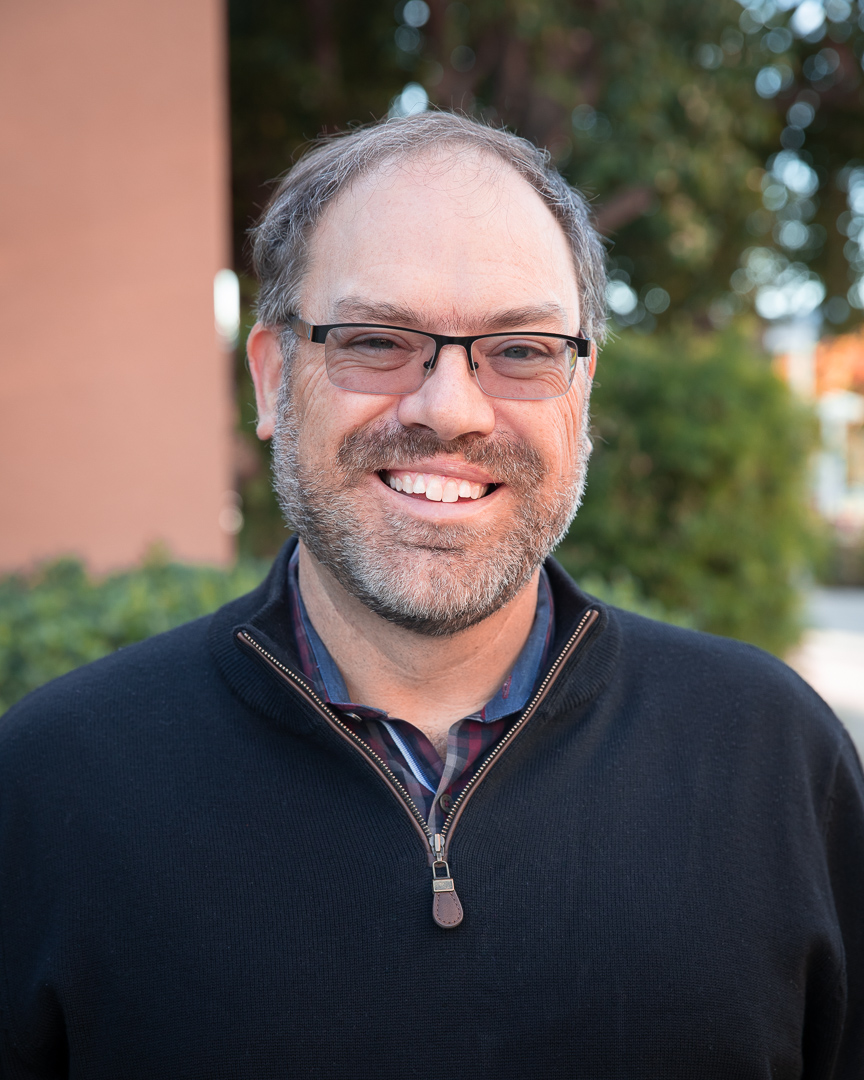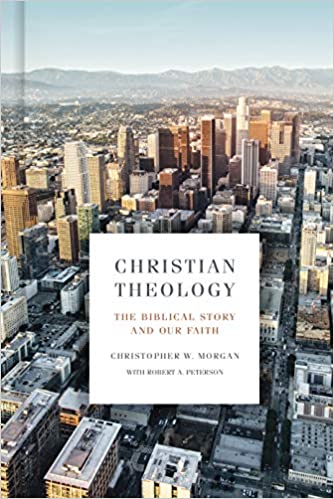An Author Interview from Books At a Glance
 Fred:
Fred:
Welcome to another author interview at Books At a Glance! I’m Fred Zaspel, and today we’re talking today to Dr. Chris Morgan about his latest two books on theology: Christian Theology: The Biblical Story and Our Faith and A Concise Dictionary of Theological Terms.
Chris, thanks for talking with us today.
Morgan:
Good to be here, Fred. Thank you.
Zaspel:
Tell us a little about yourself – where you teach, how long you have been teaching theology, and maybe how many times in the classroom have you been through the material in this book.
Morgan:
I have been at California Baptist in Riverside for 22 years. It has grown from 800 to 12,000 students in 25 years. It is a solid, evangelical, Baptist place to be with an enjoyable faculty. We get to share the Gospel and speak truth into that and help churches grow in that.
Zaspel:
Before we get into your book itself, let’s talk shop – introduce the field for us. Explain for us what the work of systematic theology is. What is it, and what is the process involved?
Morgan:
Systematic theology means several things to several people. We at least know the following: it is the fruit of and result of a lot of other fields coming together. It is a result of people working hard, bringing things together in New Testament and Old Testament studies, exegesis of various passages, biblical theology (themes of the Bible across the Testaments), historical theology (the views of the church throughout history), and cultural and philosophical topics brought together. It is an impossible task, and no one knows everything about everything.
The gist of it is thinking through what the whole Bible says about major topics that are central to the biblical storyline. Those topics tend to be: what is God’s word? Who is God? Who are we? What does it mean to be a sinner? Who is Jesus? What did he do for us? How does he save? What does salvation mean? Who is the Holy Spirit? What is the church? What does the future hold? It takes topics and shows what we know for sure about these topics and what we think we know about these topics.
Zaspel:
It is a shame that many Christians still seem to think that all this is for professional theologians only. So, explain for us, how is a knowledge of systematic theology important for every Christian?
Morgan:
There is an academic and nonacademic version. Theology is about the truth of the Bible and that is essential for anyone who knows the Lord. We cannot pray without knowing theology. It drives our worship and faith. Why would we trust in God? Because we know who God is.
Zaspel:
What are the major areas of doctrine that Christians should most be acquainted with, and why?
Morgan:
The doctrine of God and his revelation. Who is God and how does he communicate? The doctrine of humanity and sin. Who are we and what does it mean to be in the image of God? The doctrine of Christ and his saving work. Who is Jesus? Fully divine and fully human and united as one person. What does he do on the cross and in the resurrection for us? How does his death shape us? What does it mean to be saved? Who is the Holy Spirit? How does he apply what Jesus has accomplished? Who is the church? What does the future hold? Those tend to be the main topics of the Christian faith.
What is the need for new books of systematic theology, and what is the contribution you hope to make? In what ways is your book distinctive? And what is the significance of your subtitle: Christian Theology: The Biblical Story and Our Faith.
Morgan:
There are going to be great books out there on these topics and I hope mine is helpful to many. It does not claim to be the best of all time. I hope others are not doing that either. I think it is doing something that other books are not doing as well as I want it. I have been teaching these classes for 20 years and taught 60 or more classes on this and the Ph.D. level on this. There are several books that have stood the test of time. A lot of the books in theology spend half of the pages on debate and do not know about it perfectly.
Very rarely can you walk away from a chapter if you are 18-22, a new Christian, or a young pastor with the essence of things. I want people to walk away and know more about what the Bible teaches. I do not want people to worry too much about what my view is about end times. They need to be in the Lord for more years, I do not want to hijack their growth by giving 8 pages on my case. I wanted to show a biblically driven work.
We start off by emphasizing the different key passages of these doctrines and unpack them so that it is inductive and not me telling people what I think. I would think that most Christians could agree with the vast majority and I want it to be personal. Instead of making it feel like you are reading a textbook, although it has textbook elements that make it useful for classes. I want them to feel like they are reading something for their benefit and whole person instead of just for their mind. Instead of the doctrine of regeneration, we are alive in Christ. We use the doctrinal terms, but we do not highlight the language. We highlight what is personal, shapes our identity, and shapes the core truths of the faith.
Zaspel:
Tell us how you approach each next subject, chapter by chapter. I think it is very helpful.
Morgan:
I want people to think of the storyline of the Bible. Creation, fall, redemption, and consummation is the storyline but also the contours of systematic theology. God creates humans who sin, and he relates to them in the Old Testament. Jesus comes and dies in our place and rises again. He establishes the church. The Holy Spirit brings that about and applies this saving work to us. We are saved and headed into a future with God. If we can show people all of this, I find that it becomes an “aha moment.” As we understand the Bible, we understand theology and begin to catch this particular flow.
Zaspel:
Who is your target audience?
Morgan:
For students but also something a pastor could bring into their church and know it is solid and safe. It is from the Bible, clear, not speculative, edifying, and shows passages. It uses language that folks would want to know and need to know but not overdo it where they are worn out and intimidated by it. It is for pastors, church leaders, students, or a person who is a thoughtful Christian.
 Zaspel:
Zaspel:
Tell us about your smaller book, A Concise Dictionary of Theological Terms, and how you hope it will be useful.
Morgan:
In the larger book, the textbook itself, we are going through each doctrine patiently and thoroughly. We are going through and putting together overall truths from the passages and tying them together with voices from church history and the global church. Then we apply it. At the end of the textbook, there is a section called “Key Terms”. My research assistant, Robert Peterson, and I tried to figure out how to do really short definitions of these key terms in the back of the textbook. We realized we would turn a clear, readable textbook into a more difficult one.
I contacted the publisher and we brainstormed and came up with the idea of a concise dictionary. In the dictionary, you have everything from Abrahamic Covenant to Zwingli. Things like hope, the Holy Spirit, the deity of Christ, apologetics, Augustine, and intersectionality. There is a little bit of everything in there. Usually, they are a half or a third of a page with a few that are a little longer.
Zaspel:
We are talking today to Dr. Chris Morgan, author of two new books on theology: Christian Theology: The Biblical Story and Our Faith and A Concise Dictionary of Theological Terms. Dr. Morgan is a faithful and experienced teacher of theology, and we hope these excellent books will get wide use. We encourage you to make them part of your home library. Use them for reference or read them straight through – they really are very helpful resources.
Chris, thanks so much for your good work and for talking to us today.
Morgan:
Thank you, Fred!

